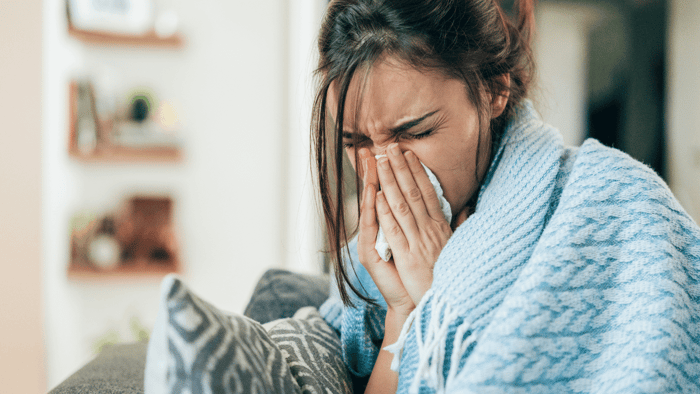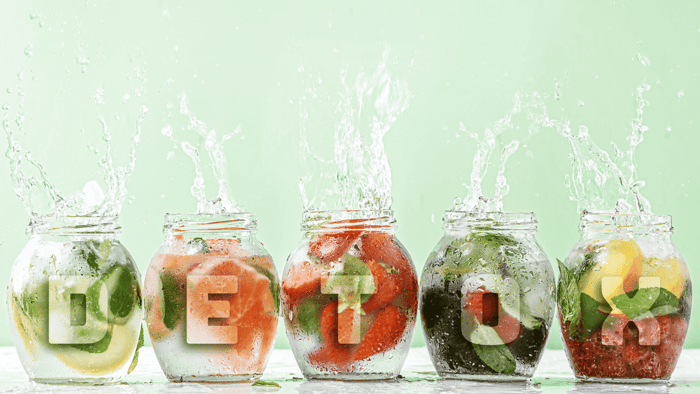Liana Werner-Grey Health & Nutrition Coach and best-selling author of “The Earth Diet” takes a look at her 8 Top Anti-anxiety Supplements.
Anxiety has become more and more prevalent in today’s world. It is one of the most common mental health disorders. It has been recorded that over 40 million people, 19.1% of the world’s population, have experienced symptoms of anxiety. While not everyone who experiences symptoms has been clinically diagnosed, there are people suffering daily from anxiety and they may not even truly know where the symptoms they are experiencing come from.
Anxiety can be triggered by a number of causes, but most commonly, it stems from big life changes, daily stress, and trauma. While pharmaceutical drugs can help to manage anxiety, I have spent years researching foods and supplements that help to reduce anxiety in a more natural and holistic manner.
Using supplements for anxiety can be a powerful solution. Based on the available evidence, it appears that nutritional and herbal supplementation is an incredibly effective method for treating anxiety and anxiety-related conditions, usually without the risk of serious side effects. In fact, many supplements have been proven to be even more effective than some conventional medications.
The Anti-anxiety supplements I recommend below are natural, made either using ingredients that come from nature or straight from foods. A lot of these Anti-anxiety supplements are anxiolytic (anxiety-reducing) as well as immune-boosting. There is evidence that too much anxiety can weaken the immune system dramatically. Anxiety puts stress on the body, which, in turn, releases cortisol and creates more anxiety in the body. Anxiety is a two-way street; people who are physically unwell also tend to feel more anxious. The biological effects of stress on immunity are multifaceted, including complex neuroendocrine and neurotransmitter interactions.
An Anti-anxiety supplement is either a pill, capsule, tablet, powder, or liquid that is designed to complement a diet of whole, unprocessed foods by providing missing nutrients or extra doses of certain nutrients. Anti-anxiety supplements can be incredibly useful for rapidly putting sufficient amounts of nutrients into your body, especially if you are nutrient deficient.
Here are my top supplements to help with anxiety.
Ashwagandha:
Ashwagandha, also known as Indian ginseng (Withania somnifera), is derived from the fruit or leaf of an evergreen shrub. In Latin, the species name, somnifera, means “sleep-inducing.” Most ashwagandha is cultivated in India, Nepal, and China. This has been used for centuries to alleviate fatigue and improve general well-being. It has powerful anti-anxiety, antioxidant, and anti-inflammatory properties. It is also an adaptogen, which means it helps the body respond to stress. You can buy ashwagandha in the form of a loose powder, a capsule, a leaf, or a leaf extract. I have also included ashwagandha as the first ingredient in my own Liana’s Organics Anxiety-free Supplement, a blend of 10 organic herbal ingredients, a few of which are also on this list.
B-complex vitamins:
Some of the earliest research studies on nutrients relevant to mental illness observed irritability and mood problems in people known to be deficient in B vitamins. B vitamins are important for making sure the body’s cells are functioning properly. Not only do they maintain healthy brain cells, but they also help the body convert food into energy, create new blood cells, and maintain healthy skin and other tissues. All B vitamins are powerful immune boosters.
Blue-green algae (Cyanobacteria):
Blue-green algae are some of the most nutrient-dense foods on the planet. You can find blue-green algae, such as spirulina and chlorella, marketed under various product names. Algae are found in almost every terrestrial and aquatic habitat, including oceans, freshwater ponds and lakes, damp soil, and moist rocks in deserts—even in Antarctic rocks! This pervasive life form owes its superfood status to its high concentrations of protein, vitamins, and minerals. Through photosynthesis, it turns sunlight into oxygen in the water. WebMD reports that people use blue-green algae for boosting the immune system, improving memory, supporting brain health, increasing energy and metabolism function, and improving digestion and bowel health.
Chlorophyll:
My absolute favorite supplement in the world is chlorophyll—the green pigment in plants—and I wish every human being were consuming it on a daily basis. Chlorophyll is a compound found in dark leafy greens like kale, spinach, collard greens, dandelion greens, turnip greens, broccoli and broccoli sprouts, and blue-green algae, like chlorella and spirulina. Although I feel that it has been understudied, there are many health benefits of chlorophyll. Chlorophyll also contains magnesium, which we know helps to reduce anxiety. Chlorophyll is anti-inflammatory and has been shown to enhance oxidative stress tolerance, meaning that your body will be able to adapt to stressful conditions more easily.
Omega-3 Fatty Acids:
Omega-3 fats are the fats the brain thrives on and helps to lower the risk of developing anxiety, depression, and other problems with cognitive function. There are three main omega-3 fatty acids.
Alpha-linolenic acid (ALA): Found mainly in plant oils such as flaxseed, soybean, and canola oils.
Eicosapentaenoic acid (EPA): Found mainly in fish.
Docosahexaenoic acid (DHA): Found mainly in fish.
Supplementation with omega-3 fatty acids is a practical way to increase their levels in your body, especially for those who do not eat fish.
Magnesium:
Magnesium is a naturally occurring mineral found in food that’s known to relax the brain and body. It is beneficial in the treatment of migraines, insomnia, anxiety, depression, and coronary artery disease. Yet, experts say that up to 75% of people in the United States are not meeting their recommended magnesium intake. Magnesium deficiency has been shown to cause anxiety, with one study finding 75% of depressed patients to be magnesium deficient, with another 9% at borderline levels.
Probiotics:
Pro means “for.” Bio means “life.” The aptly named probiotics promote life, containing the good bacteria that support a healthy gut microbiome. You consume these naturally when you eat fermented foods, kombucha, miso, tempeh, sourdough, raw milk, and raw or fermented milk products. An Imbalance of gut microbes has been implicated in many disorders—everything from inflammatory bowel disease to obesity, psychiatric illnesses (including anxiety), and different cancers. As a supplement that helps the gut function properly, probiotics play a role in protecting us against gut-brain–connected anxiety.
Sulforaphane:
Sulforaphane is a compound found in vegetables, including broccoli, broccoli sprouts, spinach, kale, cauliflower, brussels sprouts, and more. Sulforaphane is known to reduce inflammation in the body, which is one of the key triggers of anxiety. Broccoli sprouts contain the most potent levels of sulforaphane. Including broccoli sprouts in your daily diet can be key to reducing anxiety. It’s as simple as sprinkling them on a pasta dish or taking a Broc Shot. Broc Shot is a quick and effective way to get sulforaphane in a ready-to-drink wellness shot made with just pure broccoli sprout powder and water.
It might come as a relief to you to know there are many great supplements that can help reduce anxiety—some of which provide noticeable differences within minutes of taking them. I was immediately excited when researching this topic. It’s important to mention that I do not take all the supplements on this list, nor do I recommend that you do so. I wanted to provide you with a comprehensive list, so I’ve included the most common supplements, those with the best scientific backing, and my personal favorites so you could decide for yourself which supplements would be best for you.
Want to know everything going on in natural health and beauty? Sign up for BVU's newsletter. You can also follow along on Instagram and Facebook.




